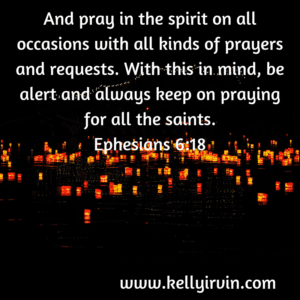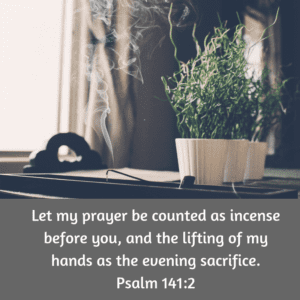If I recorded my prayer conversations with God, they would sound something like this:
Hey God, how’s it going?
Yeah, I know. I forgot our appointment yesterday. Go ahead and put it on my tab. I’ll pay up one of these days.
It’s already paid for? Cool. Thanks.
I’m fine. Of course, you know that’s not true. I’m used to saying that because that’s what we always say when people ask us how we are.
But I’m not here about myself. I get points for that, right?
(Sounds of a stack of papers rustling)
Here we go, let’s get through this quickly, because I’ve got writing to do, and a meeting at church, and a book I really want to read. Here we go:
Susie has chemo, Mark has back surgery, Jason’s grandpa passed away, financial resources for my kids, a job for Daniel, that Larry goes back to church, and Lilly has headaches and blah, blah, blah, blah, blah . . . you know what, you already know what the list says so why don’t we skip the reading. I’ll leave the papers here on my desk if you need to review them.
Thanks, God. You’re a good friend. And a good father. Same time, same station tomorrow.
In Jesus holy name, I pray. Amen.

Back in July, I wrote a blog popping off about prayer self-help books. We don’t need them, I said. We have the manual, I said. No one needs to tell us how to pray. There’s no one right way to do it. Truth resides in those statements. I stand by them, but like radio commentator Paul Harvey used to say, stay tuned for the rest of the story.
In September, I agreed to become our church’s lay prayer leader. The misgivings I had prior to saying I would do this only increased tenfold after I uttered the words. What did I know about prayer? I’m not even good at it. So what did I do? I turned to self-help prayer books
I started with Don’t Just Stand There, Pray Something, by Ronald Dunn, mostly because I like the title. He calls prayer a Christian’s secret weapon, “It is like a missile that can be fired toward any spot on earth, travel undetected at the speed of thought, and hit its target every time.” He notes that Satan has no defense against this weapon. He doesn’t have an anti-prayer missile.
So I set out to use that secret weapon. What I ended up with is a laundry list of prayer needs and concerns. Not much of a missile, although its sheer weight might squash old Beelzebub. I didn’t want to leave anyone or anything out. I began to feel like a kid going to Santa Claus with my wish list. To be clear, I understand the importance of intercessory prayer. We’re to pray for others. We’re to stand in the gap for them. But I couldn’t shake the feeling I wasn’t doing it right. This isn’t what a prayer life is supposed to be like. Pastor David says to talk to Jesus like he’s a friend and then listen for his answer. I don’t have any friends that I bombard with a list of wants and sometimes desperate needs. The difference, of course, is that God already knows what I want/need before I ask. Which sometimes leads me to hold up my paper stack and say, “here, God, you know what’s on the list, don’t make me read it.”
I felt (feel) inadequate to the task. A prayer warrior suggested I read Daniel Henderson’s book, Transforming Prayer: How Everything Changes When You Seek God’s Face. The nugget in Henderson’s book is that prayer is a form of worship. It is not a religious exercise. It’s about relationship. The reason we pray is because God is worthy to be sought. Our motivation is not to show off how religious we are. It’s not because we feel guilty if we don’t. (Now I feel guilty for feeling guilty.) It’s not for the approval of other Christians. We don’t pray as a tool of ministry to grow our congregations.
Henderson’s insight stung.
“Pray with your heart fixed on God’s glory, NOT just for personal satisfaction.
Pray with a heart surrendered to His will, NOT with a hurried personal agenda.
Pray that God would change you, NOT simply change things.”
Ouch. Did anyone else hang her head and cringe?

With CBS, also comes corporate/group prayer. I’m still working on this one too. I’m an introvert. Plus, scripture rings in my ears every time we pray aloud in our leadership group.
“But when you pray, go into your room, close the door and pray to your Father, who is unseen. Then your Father, who sees what is done in secret, will reward you. (Matthew 6:6 NIV)
These are devout Christians. I respect them and feel honored to have them as friends. But I have yet to be able to open my mouth. I don’t want to be self-conscious. I don’t want to think about what I’m about to say and how it will sound to others. But it seems only human to do so. Praying is an intimate, personal act. No judgement. Simply seeking what works for me.

Don’t forget we can learn much from our other leaders found in scripture. Like Abraham. He’s a lucky guy. He gets to have one-on-one conversations with God. (He might argue that dealing with a toddler at age 100 isn’t so lucky.) We learn from Abe how to talk to God. He’s not afraid to ask for what he wants. In fact, he’s bold. He’s not afraid to keep asking. He’s persistent (remember the number of times he asks God to spare the righteous people in Sodom and Gomorrah?). And he’s specific. He’s not afraid to make the big ask.
Mostly, we learn to pray by praying. So keep at it and I will too. In other words, Nike gets it right again. Just do it!
What habits do you find the most helpful in establishing a full, intimate prayer life? Please share!
